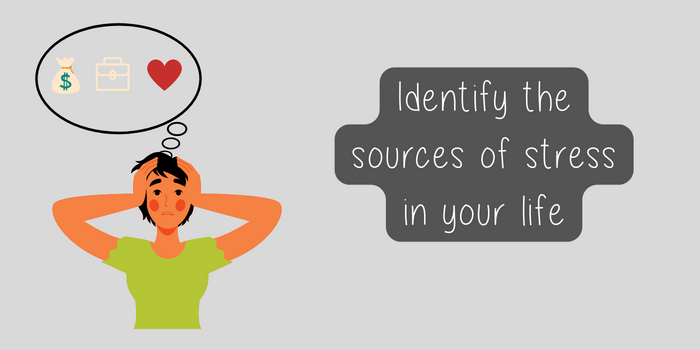In today’s fast-paced world, stress has become an almost constant companion for many people. Whether it stems from work pressure, personal relationships, financial concerns, or health issues, chronic stress can have serious consequences on both physical and mental well-being. Learning how to manage stress effectively is essential for leading a balanced and fulfilling life. Here are several practical strategies that can help you reduce stress and regain control.
1. Identify the Sources of Stress

The first step in managing stress is understanding its root causes. Often, stress is triggered by external factors such as deadlines or conflicts, but it can also be intensified by internal factors like negative self-talk or unrealistic expectations. By keeping a stress journal and noting situations, thoughts, and reactions, you can identify patterns and take steps to address them. Awareness is empowering because it allows you to respond proactively rather than react impulsively.
2. Practice Mindfulness and Meditation
Mindfulness is the practice of staying present in the moment without judgment. Techniques like deep breathing, guided meditation, and body scans can calm the nervous system and reduce the impact of stress. Studies have shown that regular mindfulness practice can decrease anxiety, improve focus, and even strengthen emotional resilience. You can start small—five minutes a day—and gradually increase the duration as you become more comfortable.
3. Exercise Regularly
Physical activity is one of the most effective natural stress relievers. Exercise stimulates the production of endorphins, chemicals in the brain that act as natural mood boosters. Even light activities like walking, yoga, or stretching can make a significant difference. For those with busy schedules, short bursts of movement, such as a 10-minute walk during lunch breaks or simple stretching routines at your desk, can help release tension and improve overall well-being.
4. Maintain a Healthy Lifestyle

Diet, sleep, and hydration play a crucial role in stress management. Consuming a balanced diet rich in fruits, vegetables, lean proteins, and whole grains helps stabilize blood sugar levels, preventing mood swings and fatigue. Similarly, getting 7–9 hours of quality sleep each night allows the body and mind to recover from daily stressors. Avoid excessive caffeine, sugar, or alcohol, as these can exacerbate anxiety and interfere with sleep patterns.
5. Build a Support Network
Social support is a powerful buffer against stress. Talking to friends, family, or mentors about your challenges can provide emotional relief and practical solutions. Sharing your feelings helps validate your experiences and reminds you that you are not alone. In some cases, joining support groups or seeking professional counseling can be highly beneficial, especially when stress becomes overwhelming or persistent.
6. Time Management and Prioritization
Many people experience stress due to feeling overwhelmed by responsibilities. Effective time management is a key tool to prevent this. Creating a schedule, setting realistic goals, and breaking tasks into smaller, manageable steps can reduce anxiety and increase productivity. Learning to say “no” to non-essential obligations is also crucial. Remember, prioritizing self-care is not selfish—it’s necessary to maintain long-term health and well-being.
7. Engage in Relaxing Activities

Incorporating relaxation and leisure activities into your daily routine can significantly reduce stress. Hobbies like reading, painting, listening to music, gardening, or even simple breathing exercises can act as a mental escape from everyday pressures. These activities help shift focus away from stressors, providing the mind with a much-needed break and enhancing creativity and positivity.
8. Practice Positive Thinking and Gratitude
The way we perceive stress greatly influences its impact. Cultivating a positive mindset can reduce emotional strain and improve problem-solving abilities. Practices like gratitude journaling, affirmations, and reframing negative thoughts encourage optimism and resilience. Instead of dwelling on challenges, focusing on solutions and appreciating small wins can transform stress into an opportunity for personal growth.
Conclusion
Stress is an unavoidable part of life, but it doesn’t have to control you. By identifying stressors, practicing mindfulness, staying physically active, maintaining a healthy lifestyle, building support networks, managing time effectively, engaging in relaxing activities, and fostering positive thinking, you can manage stress more effectively and maintain balance in your life. Remember, stress management is not about eliminating stress entirely—it’s about equipping yourself with tools to handle challenges calmly and confidently. With consistent effort and self-awareness, anyone can cultivate resilience and lead a healthier, more fulfilling life.

